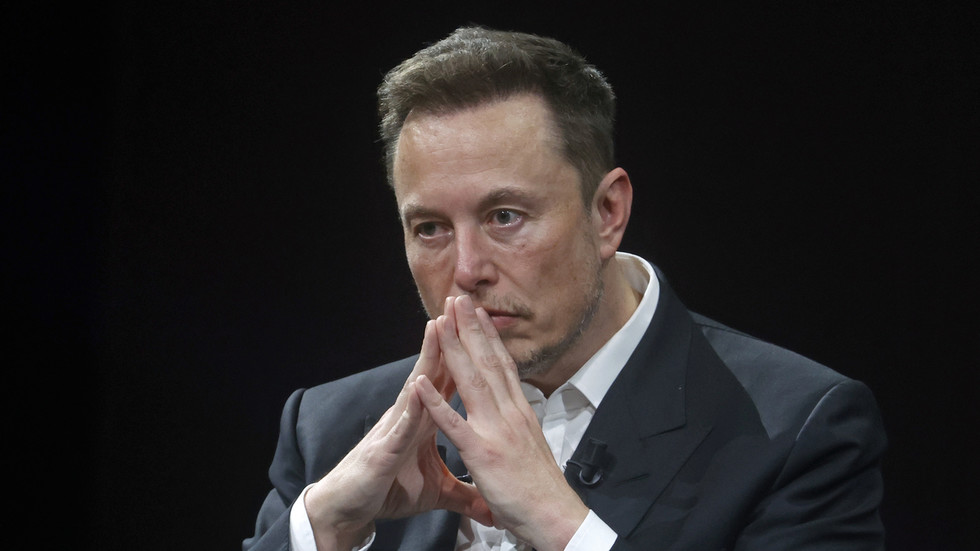Elon Musk has recently expressed serious concerns regarding the actions of the US Democratic Party, which he contends are aimed at suppressing free speech while claiming to combat hate speech and misinformation. Musk’s comments were sparked by a vice-presidential debate where issues of free speech and censorship took center stage. During the debate, Democratic candidate and Minnesota Governor Tim Walz asserted that phrases considered hate speech or misinformation are not protected under the First Amendment, contrasting this with the well-known legal principle that restricts certain forms of speech to maintain public order. Musk, who identifies as a free speech absolutist, took to the platform X to criticize the Democratic Party’s approach, suggesting that their stance effectively reduces citizens’ freedom of expression under the pretense of addressing hate speech.
In the debate, Senator J.D. Vance, the Republican vice-presidential candidate, echoed Musk’s concerns. Vance argued that the real threat to democracy lies in the censorship practices of major technology companies, which he claims are being supported by senior political figures, including Vice President Kamala Harris and President Joe Biden. He highlighted that censorship conducted by platforms such as Facebook poses a greater danger than recent political unrest, including the January 6 Capitol riots. Vance’s remarks underscored a narrative prevalent among conservatives that the silencing of dissenting voices by tech giants poses a significant challenge to democratic principles and freedom of expression.
Vance also made strong claims about the Biden-Harris administration’s handling of criticism regarding government policies, particularly during the Covid-19 pandemic. He highlighted instances where social media platforms allegedly directed by the administration sought to ban users for questioning or criticizing mask mandates. By framing these actions as a violation of American rights to free speech, Vance aimed to shift the conversation around censorship and misinformation, arguing that legitimate discourse should not be curtailed simply due to a difference in opinion regarding government policies.
Adding weight to Vance’s argument, Meta CEO Mark Zuckerberg has publicly acknowledged the pressure exerted by the Biden administration to censor certain Covid-19 related discourse on Facebook. This admission has fueled claims from several quarters that there is a systemic effort to regulate and police speech, particularly when it relates to controversial subjects like the handling of the pandemic or issues surrounding the political establishment. Furthermore, Zuckerberg’s mention of the FBI’s involvement in suppressing potentially harmful narratives, such as one about Hunter Biden’s laptop, illustrates a growing concern that governmental and corporate collusion might infringe upon the rights of citizens to freely exchange ideas and viewpoints.
With Musk’s criticisms resonating within a broader conservative narrative surrounding free speech, there is an emerging debate over the acceptable boundaries of speech in the digital age. This discourse encapsulates not only the ideological divisions within American politics but also the challenge of navigating misinformation while maintaining democratic ideals. Social media’s role as a primary battleground for public opinion raises questions about the responsibilities of tech companies in moderating content without compromising fundamental civil liberties. The juxtaposition of concerns over misinformation with the imperative to safeguard free speech rights remains a contentious issue, as both sides of the political spectrum assert their positions with increasing urgency.
In conclusion, the intersection of technology, government policy, and free speech has become a flashpoint in American political discourse, with high-profile figures like Elon Musk and J.D. Vance amplifying concerns about censorship. As allegations of a coordinated effort to silence dissent circulate, the debate over the balance between protecting citizens from harmful speech and preserving their right to express differing opinions continues to evolve. The situation highlights the complexities faced by democratic societies in addressing both the risks associated with misinformation and the essential need for uninhibited free expression. The outcome of this ongoing dialogue will undoubtedly shape the future landscape of civil discourse, political engagement, and the role of technology in society.

